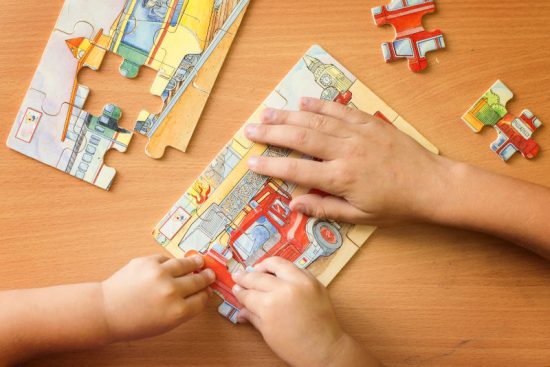
Everyone knows that being a mom is a full-time job, often with no coffee breaks and plenty of chaos. But what really sets a good mother apart from the rest? It’s not just about knowing how to whip up a perfect mac and cheese or mastering the art of the bedtime story. A good mom has a unique blend of traits that not only nurture her children but also keep the household running smoothly—like a well-oiled machine, albeit one that occasionally runs out of snacks.
From her uncanny ability to locate lost toys in record time to the way she effortlessly juggles work and family life, the signs of a good mother are often subtle yet powerful. Let’s dive into the delightful world of motherhood and uncover the telltale signs that indicate she’s not just winging it, but thriving in this beautiful chaos.
Signs of a Good Mother
Signs of a good mother often manifest in various aspects of daily life. A nurturing behavior stands out; she consistently listens to her children’s concerns and offers genuine support. Awareness of her child’s emotions plays a crucial role; she recognizes when they need comfort and reassurance. Adaptability showcases her strengths; she adjusts her parenting strategies according to her child’s developmental stage.
Another vital sign includes consistent communication. Open lines of dialogue foster trust and encourage children to express themselves freely. Time management skills reveal her effectiveness; scheduling family activities amidst a busy lifestyle illustrates her commitment. Empathy also differentiates her; she relates to her children’s feelings, ensuring they feel valued and understood.
Organization contributes to a well-structured environment. An organized home allows children to thrive and understand the importance of responsibility. Problem-solving abilities further highlight her proficiency; she swiftly addresses issues, teaching children resilience. Celebrating achievements, no matter how small, boosts children’s self-esteem and reinforces their efforts.
Involvement in education presents another key indicator. A good mother engages in her children’s academic lives, providing support for homework and encouraging curiosity. Knowing when to guide and when to step back shows her trust in their decision-making processes. By fostering independence, she prepares them for future challenges.
Attendance at significant events reflects her dedication; she prioritizes milestones, reinforcing family connections. Overall, the multitude of signs illustrates a good mother’s deep commitment to her children’s well-being and development.
Emotional Support


Emotional support comprises key characteristics that define a good mother. These traits significantly impact a child’s development, ensuring they feel safe and valued.
Unconditional Love
Unconditional love creates a nurturing environment for children to thrive. It means accepting children without any conditions while providing reassurance and affection. Children need to feel that their worth isn’t dependent on achievements. A mother’s unwavering support enhances their self-esteem and confidence. Commitment to showing love fosters a secure attachment that encourages emotional openness. Demonstrating this love through words and actions strengthens the bond and promotes healthy emotional development.
Active Listening
Active listening stands as a crucial element of emotional support. It involves fully engaging with children and understanding their feelings. By giving undivided attention, mothers create a safe space for open communication. Children feel heard and validated, which nurtures their ability to express emotions. Asking open-ended questions encourages them to share thoughts and concerns. This practice not only builds trust but also enhances problem-solving skills together. Recognizing non-verbal cues further demonstrates attentiveness and empathy, ensuring children feel understood.
Positive Discipline
Positive discipline focuses on guiding children through clear expectations and constructive feedback. This approach nurtures a child’s sense of security while teaching important life lessons.
Consistency in Rules
Consistency in rules fosters trust and understanding. It ensures children know what behaviors are acceptable. A mother reinforces boundaries consistently, providing a secure environment for her children. When rules remain stable, children feel more confident in their choices. Repeatedly applying the same standards aids in developing self-discipline. Predictable consequences for actions help children learn accountability. A mother who embodies this consistency not only nurtures adherence to rules but also establishes a strong foundation for respectful relationships.
Encouragement and Motivation
Encouragement and motivation play vital roles in nurturing a child’s self-esteem. A good mother actively celebrates even small achievements, reinforcing a sense of capability. Using positive language boosts a child’s confidence and creates a motivational atmosphere. Highlighting effort rather than results fosters resilience. When she expresses belief in their abilities, children feel empowered to tackle challenges. Offering support during difficult tasks shows her commitment to their growth. A mother who prioritizes encouragement inspires a love for learning and exploration, laying the groundwork for lifelong confidence.
Building Strong Relationships
Strong relationships between mothers and children foster emotional security and personal growth. Fostering these connections takes intentional effort and understanding.
Quality Time Together
A good mother prioritizes quality time with her children, creating lasting memories. Engaging in activities like playing, cooking, or exploring nature brings joy and strengthens bonds. Shared experiences develop trust and teamwork, allowing children to feel valued. Each moment spent together becomes an opportunity for learning and development. Mothers who focus on meaningful interactions teach their children the importance of relationships. Regular family rituals, such as game nights or outings, reinforce connection and tradition. Ultimately, these shared moments nurture the emotional foundation for healthy development.
Open Communication
Open communication serves as a bedrock for strong mother-child relationships. A good mother actively listens and encourages her children to express their thoughts and feelings. Instead of just asking questions, she also provides thoughtful responses, validating her children’s emotions. Ensuring a safe atmosphere allows children to share without fear of judgment. Recognizing non-verbal cues helps her understand underlying emotions. Encouraging open dialogues promotes honesty and transparency, essential for trust. Regularly discussing both successes and challenges fosters resilience and problem-solving skills. Overall, open communication strengthens the emotional bond and nurtures healthy relationships.
Nurturing a Child’s Growth
Nurturing a child’s growth involves several key areas, including education and independence. A good mother plays a vital role in both aspects.
Support for Education
Active involvement in education showcases a good mother’s commitment. She prioritizes learning by attending school events and meetings. Helping with homework is a regular activity that strengthens her child’s academic skills. Encouragement during challenging subjects builds resilience and motivates children. By recognizing achievements, whether big or small, she fosters a positive attitude toward learning. Resources like books and educational tools are often provided to enhance understanding. Additionally, she creates a structured study environment, allowing her child to focus and develop effective study habits. These actions contribute significantly to her child’s overall educational growth and success.
Fostering Independence
Fostering independence is crucial in a child’s development. A good mother understands the importance of allowing her child to make decisions. She encourages problem-solving skills by letting them tackle challenges independently. Setting achievable goals helps build confidence and reinforces self-reliance. Providing opportunities for age-appropriate responsibilities teaches accountability. Open discussions about choices create a safe space for children to voice their opinions. Gradually stepping back while offering guidance supports exploration without overprotection. This balance empowers children to develop critical life skills and prepares them for future challenges.
Conclusion
Recognizing the signs of a good mother reveals the profound impact she has on her children’s lives. Her nurturing nature and emotional support create a safe environment where children can thrive. Through active listening and positive discipline, she fosters resilience and independence in her children.
The commitment to quality time and open communication strengthens their bond, allowing for healthy emotional development. By celebrating achievements and encouraging education, she lays the foundation for lifelong confidence and success. Ultimately, the characteristics of a good mother are evident in the love and dedication she brings to her family, shaping the next generation with care and compassion.




